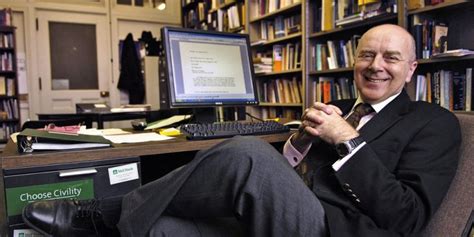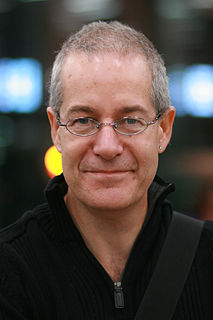A Quote by John Stuart Mill
There should be perfect freedom, legal and social, to do the action and stand the consequences. It would be a great misunderstanding of this doctrine to suppose that it is one of selfish indifference, which pretends that human beings have no business with each other's conduct in life, and that they should not concern themselves about the well-doing or well-being of one another, unless their own interest is involved.
Quote Topics
About
Action
Another
Being
Beings
Business
Concern
Conduct
Consequences
Doctrine
Doing
Each
Freedom
Great
Human
Human Being
Human Beings
Indifference
Interest
Involved
Legal
Life
Misunderstanding
No Business
Other
Own
Perfect
Selfish
Should
Social
Stand
Suppose
Themselves
Unless
Well
Well-Being
Which
Would
Would Be
Related Quotes
We are resolved to protect individual freedom of belief. This freedom must include the child as well as the parent. The freedom for which we stand is not freedom of belief as we please,... not freedom to evade responsibility, ...but freedom to be honest in speech and action, freedom to respect one's own integrity of thought and feeling, freedom to question, to investigate, to try, to understand life and the universe in which life abounds, freedom to search anywhere and everywhere to find the meaning of Being, freedom to experiment with new ways of living that seem better than the old.
Well I know Gyuri [the familiar diminutive of Georg or György], that human beings are unapproachable, that their souls are as far from each other as stars; only the remote radiance reaches to the other. I know that human beings are surrounded by dark, great seas, and thus they look across to one another, yearning but never reaching one another
It is my fundamental conviction that compassion - the natural capacity of the human heart to feel concern for and connection with another human being - constitutes a basic aspect of our nature shared by all human beings, as well as being the foundation of our happiness. All ethical teachings, whether religious or nonreligious, aim to nurture this innate and precious quality, to develop it and to perfect it.
It is important that when pursing our own self-interest we should be 'wise selfish' and not 'foolish selfish'. Being foolish selfish means pursuing our own interests in a narrow, shortsighted way. Being wise selfish means taking a broader view and recognizing that our own long-term individual interest lies in the welfare of everyone. Being wise selfish means being compassionate.
The state should never have instituted and enforced legal property rights in persons, and should not have been in the business of returning runaway slaves to their "rightful owners." The whole institution of property in human beings was an unjust social institution and should not have been maintained in existence. It is this sort of thought that I'm appealing to at the supranational level.
Civility means a great deal more than just being nice to one another. It is complex and encompasses learning how to connect successfully and live well with others, developing thoughtfulness, and fostering effective self-expression and communication. Civility includes courtesy, politeness, mutual respect, fairness, good manners, as well as a matter of good health. Taking an active interest in the well-being of our community and concern for the health of our society is also involved in civility.
Another simple and powerful way to dissolve problems is not to dwell upon the outcome of your actions. Instead, learn to value each action (no matter how small or large), to do it with complete attention. Your joy and satisfaction comes from doing each action with a whole heart and mind. Results and consequences then take care of themselves. When you are not absorbed by concern for outcomes, how much anxiety can you ever have?
[On dishonest business methods:] ... frequently the defender of the practice falls back on the Christian doctrine of charity, and points out that we are erring mortals and must allow for each other's weaknesses! - an excuse which, if carried to its legitimate conclusion, would leave our business men weeping on one another's shoulders over human frailty, while they picked one another's pockets.
There are novels that end well, but in between there are human beings acting like human beings. And human beings are not perfect. All of the motives a human being may have, which are mixed, that's the novelists' materials. That's where they have to go. And a lot of that just isn't pretty. We like to think of ourselves as really, really good people. But look in the mirror. Really look. Look at your own mixed motives. And then multiply that.
The Stoic discipline of action, which is connected to the virtue of justice, says that we ought to treat others fairly and we should engage in social and political activity. This is further supported by the Stoic idea of cosmopolitanism, and by the famous "circles of concern" identified by Hierocles, who counseled that we should refer to other people as brothers and sisters, to constantly remind ourselves that we are members of the same human family.







































